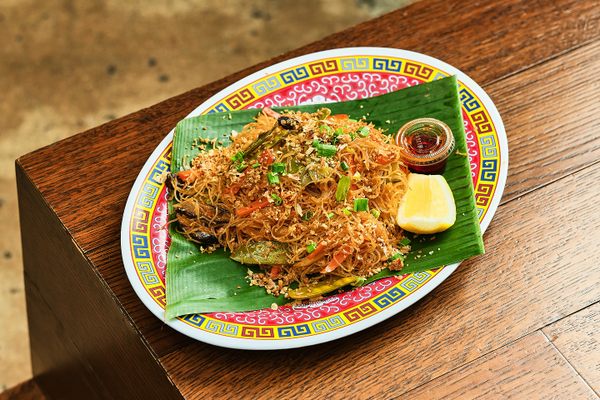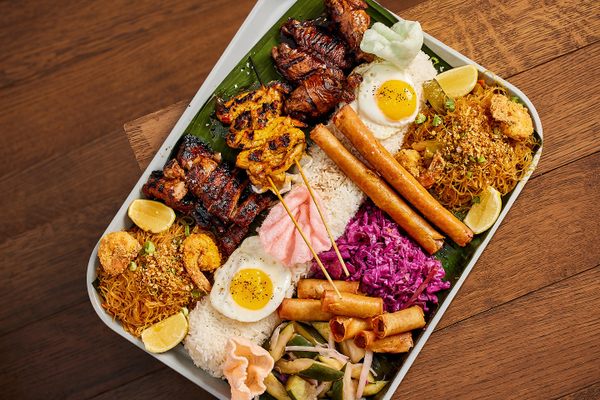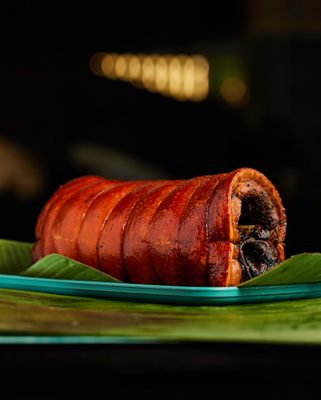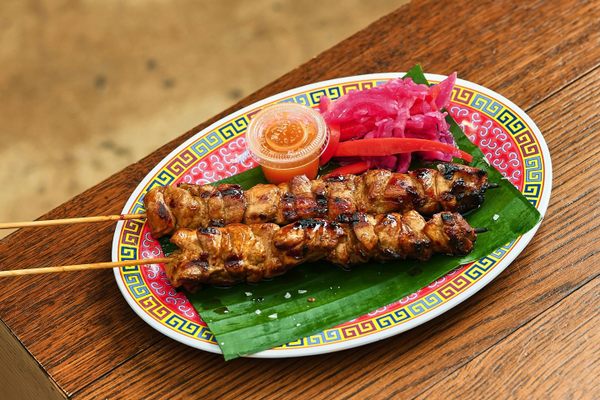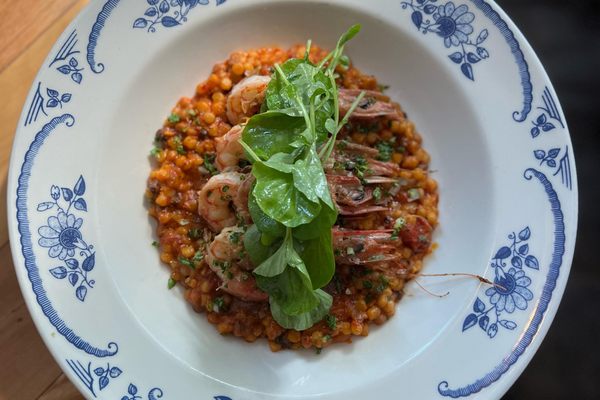About
Paul Qui and Tom Cunanan are two outstanding chefs in their own right. Both childhood immigrants to the United States from the Philippines, they each went on to win James Beard Awards for their individual restaurants in Texas and D.C. respectively. Since 2021, their collaborative venture, Soy Pinoy, offers imaginative renditions on Philippine cuisine unlike anything on either side of the Pacific.
Soy Pinoy (which translates to “I’m Filipino” in the Philippines’ main dialect, Tagalog), a vendor stall in Houston’s POST Market food hall, delivers tasty Filipino cuisine with a modern presentation. High-quality ingredients and fancy techniques from both trained chefs bring a new edge to the deep, savory flavor Filipino cuisine is famous for. From barbecue platters to tray menu specials, every order looks rich, and tastes even richer.
A must-try starter is lumpia, pork-filled spring rolls which are thicker and crispier than the well-known Chinese ones (lumpia are popular in other Southeast Asian countries due to influence by Chinese regional immigration) and also differentiated by sweet, tangy banana ketchup sauce (the Philippines’ favorite condiment).
Meanwhile, the crowd-favorite squid adobo is a deep-sea take on the Philippines’ national dish, usually made with pork. Soy Pinoy’s adobo, rather, features tender calamari though traditional marinade ingredients (soy sauce, garlic, vinegar, bay leaf and black peppercorn, among others).
Among the mains, the “Best Lechon” is a standout, paying homage to the Filipino fiesta dish of spit-roasted pig. This market hall-sized, single-portion form though, features the best part of the baboy (pig), crispy pork belly slices, plus a serving of steamed rice and mango pico tomato salad.
“Tom’s Spaghetti” is a recommendation for anyone who isn’t familiar with the Pinoy (Filipino) adaptation of a meaty Italian ragù. The dish originated during American colonization of the Philippines, and is still today a popular dish at kids’ birthday parties. Be forewarned, though, the sauce is sweet (thanks to banana ketchup), plus the generous topping of hot dogs and Parmesan might not make this a dish for everyone.
Related Tags
Know Before You Go
Coming with friends? Order the kamayan, a traditional communal-style feast, laid out on fresh banana leaves and traditionally eaten by hand. There are two versions (one with traditional meats including fried chicken and Lechon, the other with different kinds of seafood); both are only suitable for group dining.
Community Contributors
Added By
Published
August 20, 2024
